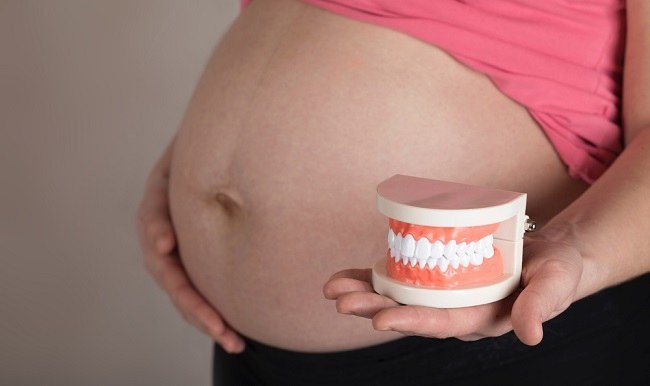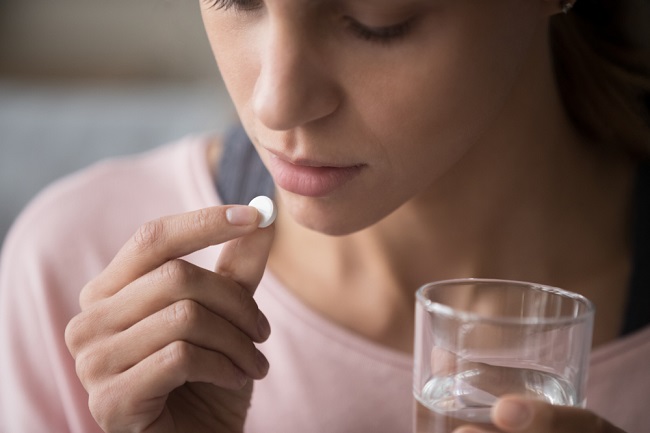Sensitive tooth problems can happen to anyone, not just those who are negligent in taking care of their teeth. Sensitive teeth are also often complained of by pregnant women and the elderly. Come on, find out what causes sensitive teeth as well as how to overcome them.
Tooth sensitivity is a condition where there is pain and tenderness in the teeth. This occurs when the teeth over-respond to certain stimuli, for example when eating foods or drinks that are too hot or cold.

Tooth sensitivity can occur temporarily or in the long term, in either one or several teeth.
Causes of Sensitive Teeth
For the food lovers, eating freshly served food and sipping cold drinks can be satisfaction in itself because it tastes more delicious. Various foods, including sweet and sour tastes, and soft drinks certainly do not go unnoticed.
But do you know? This habit makes you susceptible to sensitive teeth, you know! Especially if you neglect to take care of your dental and oral health regularly. Gradually the layer of enamel or enamel on the teeth can be eroded, so that the teeth become sensitive and prone to pain.
In addition to food that is too hot or cold, there are several factors that can also cause sensitive teeth, namely:
- Brushing too hard and hard, using a toothbrush with coarse bristles, and grinding your teeth while sleeping.
- Use of mouthwash that contains alcohol or perform teeth whitening procedures.
- Frequent vomiting, for example due to gastric acid reflux disease (GERD), gastric emptying disorders (gastroparesis), and bulimia.
- The habit of grinding or grinding teeth (bruxism).
Sensitive teeth problems can also be experienced by pregnant women due to hormonal changes during pregnancy. In addition, during pregnancy, teeth become vulnerable to bacteria that cause dental and oral health problems that trigger plaque buildup, causing swollen and inflamed gums.
In addition to pregnant women, sensitive teeth are also prone to be experienced by the elderly. This is because when you enter old age, your gums will shrink and make your teeth more sensitive.
Saliva production can also decrease with age or as a side effect of certain medications, making teeth more prone to decay and eventually triggering tooth sensitivity.
Solutions to Overcome Sensitive Teeth
To treat mild sensitive teeth, you can use toothpaste with a special formula for sensitive teeth. Choose a toothpaste for sensitive teeth that contains minerals hydroxyapatite (HAP), potassium citrate, and zinc citrate.
Based on research results, minerals hydroxyapatite (HAP) can help repair tooth enamel and maintain tooth strength longer. In a clinical trial, a toothpaste containing potassium citrate proven to be effective in reducing pain in sensitive teeth. While the content zinc citrate, is useful for cleaning plaque and providing protection to the teeth and mouth from bacteria.
Content mix hydroxyapatite (HAP), potassium citrate, and zinc citrate The content of toothpaste is said to help reduce pain in 30 seconds and prevent it from coming back.
If the complaint of sensitive teeth makes it difficult to eat, you should consult a dentist. There are several treatment options for sensitive teeth that are usually recommended by dentists, namely:
- Use of toothpaste prescribed by a doctor.
- Medical procedures for the teeth and mouth, such as root closure procedures with special materials, root canal treatment (root canal), or gum surgery, if there are problems with the teeth and gums.
- Referral to an internist, if the cause is GERD.
- Referral to a psychiatrist, if complaints of sensitive teeth caused by bulimia.
Prevents Sensitive Teeth from Coming Back
In order to prevent sensitive tooth complaints from coming back, you must regularly take care of your dental and oral health by:
- Brush your teeth twice a day, in the morning and at night before going to bed.
- Use a soft-bristled toothbrush, and don't brush your teeth too hard or too hard.
- Clean between the teeth with dental floss.
- If you want to use mouthwash, choose a product with content fluoride and alcohol free.
- Avoid using teeth whiteners or performing teeth whitening procedures.
- Sufficient fluid intake every day by drinking lots of water.
- Avoid consuming foods or drinks that can trigger toothache, such as foods and drinks that are too hot or cold.
- Do not brush your teeth immediately after consuming acidic foods or drinks, including soft drinks. Gargle with plain water first, then wait up to 30 minutes before brushing your teeth.
- Do regular checkups to the dentist, every 6 months.
If the complaint of sensitive teeth does not improve after you try some of the ways above, immediately consult a dentist. The dentist will find out the cause of your sensitive teeth, then provide appropriate treatment and treatment.









